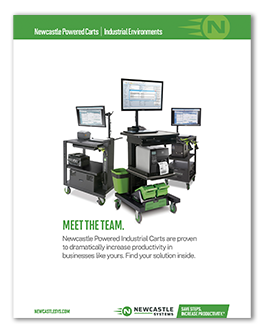
Innovations in manufacturing, technology, and sciences have led to the development of more interesting and useful products. From medical devices to pharmaceuticals to consumer products, innovation has changed the way we live and created businesses worth billions. An essential factor in creating, launching, and delivering such products is quality management.
It’s not only critical that businesses create reliable and safe products but also ones that adhere to various regulatory requirements, like those created by the FDA or CPSC. As a result, quality management has gained more prominence over the years.
Another reason quality management is vital is the free flow of information. In other words, if the quality is poor, word is sure to get out quickly and have far-reaching effects. Here are some of the latest trends in quality management and how they can impact your business moving forward.
1. Integration of Artificial Intelligence and Machine Learning
Artificial Intelligence (AI) and machine learning (ML) are helping businesses take their quality management processes to the next level. These systems are designed for gathering, analyzing, and interpreting massive amounts of data.
Using AI and ML in quality management, a business can identify trends, predict future quality challenges, and suggest proactive measures to avoid costly errors. These technologies can also help businesses reduce errors, streamline processes, and make better overall production decisions.
2. Cloud-Based Quality Management Systems
 Cloud computing has revolutionized business management and recordkeeping systems because it offers a centralized data storage depository, real-time accessibility, and seamless collaboration by disbursed team members.
Cloud computing has revolutionized business management and recordkeeping systems because it offers a centralized data storage depository, real-time accessibility, and seamless collaboration by disbursed team members.
Additionally, cloud-based quality management systems offer scalability, allow organizations to eliminate costly technology infrastructure, and enable faster adaptability to changing business conditions.
3. Internet of Things (IoT) and Sensor Technologies
Quality management has become much more technology-centered. Instead of just visual inspections, businesses are relying more on sensors and the Internet of Things (IoT) to automate some quality management functions.
Sensors on machinery and products can collect and deliver real-time data about the production process and important metrics, enabling businesses to monitor quality more efficiently. For example, sensors can return information about temperature, humidity, production time, and other vital data.
4. Blockchain for Enhanced Traceability and Transparency
There is massive potential for better quality management in the future by leveraging technology like blockchain, which is a method of recording information in a way that makes it impossible for data to be manipulated, hacked, or changed. This is particularly useful in industries that require absolute transparency, like pharmaceuticals and consumables.
Blockchain allows organizations to create an unchangeable record at every stage of the supply chain. This can reduce the risk of counterfeiting and improve consumer trust in products and the businesses behind them.
5. Emphasis on Privacy and Data Security
As quality management becomes more data-intensive, it’s critical that organizations ensure the privacy and security of sensitive customer and business partner information. Businesses must invest in adequate cybersecurity measures to protect against potential breaches and threats.
Secure access controls, regular system audits, and encryption are a few examples of safeguarding critical data and maintaining customer trust. It can also be as simple as placing physical locks on mobile technology carts to prevent unauthorized use.
6. Lean and Agile Quality Management
 Another of the major trends in quality management is the adoption of lean and agile methods and principles. This involves a focus on delivering value to customers more efficiently and faster while minimizing errors and waste.
Another of the major trends in quality management is the adoption of lean and agile methods and principles. This involves a focus on delivering value to customers more efficiently and faster while minimizing errors and waste.
For example, instead of traveling back and forth to a central administrative location, quality teams can use mobile powered carts to improve their productivity, responsiveness, and efficiency.
7. Customer-Centric Quality Initiatives
Instead of simply focusing on the product, businesses have shifted the quality focus to more customer-centric solutions. In other words, the customer is at the center of all quality-related decisions and actions, provided they align with the company’s goals.
This type of quality control requires that businesses engage more with customers to fully understand their wants and needs. This can ensure what is being delivered is addressing those pain points thoroughly.
8. Sustainable Quality Management
Interestingly, some businesses are integrating their social responsibility and sustainability initiatives into their quality management programs. This involves considering things like the social, environmental, and economic impacts your products and processes have on customers, workers, and communities.
Through sustainable quality management, businesses reduce emissions and waste, adopt green practices, contribute to social causes, and promote diversity. This can help your business improve its reputation and create more value for company stakeholders.
9. Future-Ready Quality Programs
As your business manages its quality, it can also begin preparing for the future. Having a future-ready quality program means your business is considering emerging trends and changing customer needs in everything it does.
Through various quality programs, your business can address challenges and take advantage of new opportunities. Some examples of actions might include risk assessments, scenario planning, and exploring new business partnerships.
10. Continuous Learning and Improvement
Finally, a quality management trend many companies are embracing is one of continuous learning and improvement. After all, without improvement over time, your business will likely be overshadowed by the competition.
In terms of quality management, this refers to consistently seeking new knowledge and developing best practices to help your business improve and achieve better outcomes. This can help your business create a culture of excellence that will last for years to come.
Quality management has come a long way from the day of simply giving finished items a quick once-over to look for defects. With the advent of the digital age and new technologies, the concept of quality has evolved to something that helps businesses achieve cost savings and better overall results by delivering an elevated experience.












